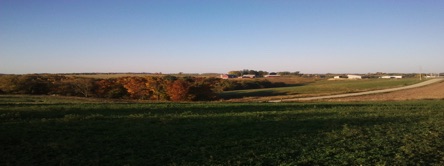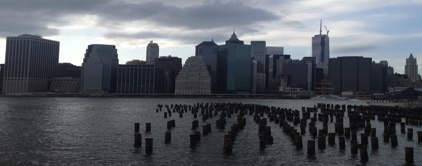Riding the Flume Teaching Guide
Plot Summary
During the summer of 1894 the giant sequoia trees—the oldest living things on earth—are being felled for lumber in northern California. Francie, the daughter of a hotel owner, finds a secret note in a hole of an old sequoia stump and recognizes her sister’s handwriting. But Carrie died in an accident six years earlier. Could the secret still be important? Francie is determined to find out. With the help of her cousin Charlie and her sister’s diary, Francie works her way, clue by clue, to the heart of Carrie’s secret—the largest, yet uncut, sequoia she has ever seen. But when people in the village find out about the tree, plans are immediately made to cut it down. Going against the wishes of her parents, Francie sets out to save her sister’s tree. Her quest turns dangerous when she needs to get to St. Joseph fast, and is faced with the choice of either giving up or riding the flume, the rickety track that carries lumber from the mills in the mountains to the lumberyard. Through her adventure, Francie learns to trust herself and know her strengths. She reconnects with her parents and they all learn new ways of dealing with the grief of the loss of a loved one.
Chapter Quiz Questions
Prologue
1. What happened to the first sequoia when it was cut down?
2. Why is Old Ben grumbling?
3. What different kinds of tools are used in felling a sequoia?
4. Who is Thomas Connor?
Chapter 1
1. What is Francie doing in the basin?
2. What does Francie find in the hole in the tree?
3. Who is Carrie?
4. Why don’t Francie’s parents want her to go to the basin?
Chapter 2
1. How old was Carrie when she died?
2. How old is Francie now?
3. Why doesn’t Francie wear her hair back?
Chapter 3
1. Who is Charlie?
2. Where does Charlie work?
3. Why does Francie ask Charlie about the note?
4. What is the flume?
5. Why do people joke about riding the flume?
Chapter 4
1. How does Francie convince her father to let her go back to the basin?
2. What is Francie’s fathers’ one vanity?
Chapter 5
1. Who is Lewis Granger?
2. Where does Charlie tell Francie to look for more clues to the mystery?
3. Why doesn’t Charlie climb the ladder?
Higher Order Thinking Skills:
1. Why do you think Lewis Granger tries to frighten Francie?
Chapter 6
1. Where does Francie find Carrie’s diary?
2. Where does Francie hide Carrie’s diary?
3. How is Carrie’s room different now from when Carrie was alive?
Chapter 7
1. How old was Francie’s father when he came west? How old was her mother?
2. What does Francie find in the diary?
3. How does Charlie convince Francie’s father to let Francie go walking with him?
4. How did Carrie die?
Chapter 8
1. What happened to Old Robert’s cabin?
2. Why does Francie want to climb Connor’s Peak?
Higher Order Thinking Skills:
1. Why do you think it bothers Francie that she reminds people so much of Carrie?
Chapter 9
1. Why does Charlie want to be on the team that cuts the tree down?
2. How does Francie threaten Charlie?
Chapter 10
1. Why does Francie tell her parents about the tree?
Higher Order Thinking Skills:
1. What do you think Francie’s parents are going to do about Carrie’s tree?
Chapter 11
1. How many rings are in the old sequoia stump?
2. How does Carrie describe Old Robert?
3. What did Carrie think of Lewis Granger? Of Thomas Connor?
4. What did Carrie say about Francie in her diary?
Chapter 12
1. Why did Francie’s father tell Lewis Granger about Carrie’s tree?
2. Why does Francie want to save the tree?
3. Why won’t Francie’s father fight to save the tree?
Chapter 13
1. What does Charlie suggest Francie do to try to save the tree?
2. What does Francie serve to the guests?
3. What does Mrs. Mansfield suggest should be done to save the tree?
Chapter 14
1. Why did Charlie come into town?
2. What does Francie need in order to prove the tree is Carrie’s?
3. What promise is most important to Francie?
Chapter 15
1. Where does Francie find the will?
2. What was Old Robert’s last name?
3. Why does Francie need to talk to Lewis Granger?
Chapter 16
1. What are three of the ways Francie considers getting to St. Joseph?
2. Why does Francie need to talk to Mr. Court fact to face?
3. Why is Francie worried about riding the flume?
Higher Order Thinking Skills:
1. Do you think Francie should ride the flume? Why or why not?
Chapter 17
1. Why does Francie think she can survive riding the flume?
2. What is Francie’s plan to avoid being arrested?
Chapter 18
1. What did Mr. Court think Francie wanted at first?
2. What does Mr. Court find out about the deed and the will?
3. Who gets to legally decide whether the tree gets cut?
Chapter 19
1. What does the sheriff say about Francie’s wild ride?
2. What does Francie think her father is going to say about the tree?
3. What happens to the carriage in the middle of the night?
Chapter 20
1. What does Lewis Granger do to the will?
2. How does Lewis Granger say the lumber company got the land?
3. Who does the sheriff send for at the end of the chapter?
Chapter 21
1. What deal does Francie’s father strike with the lumber company?
2. What does Francie ask of her parents in the end?
Higher Order Thinking Skills:
1. What do you think Francie’s punishment will be?
Discussion Questions
1) Francie is the youngest child in her family. How does this affect how she feels and acts? Why? What place are you in your family? Do you envy your siblings (or do you want siblings)? Why or why not? How do the different places and roles in families affect our personality and our behavior? What can we do to counteract or make up for the roles that our places in our family dictate for us?
2) Francie’s parents set down a series of rules that they expect her to follow. How can rules/laws be positive structures in our lives? How can they be negative? Are there any rules or laws that you feel are unfair? How do you deal with those situations? What are some famous examples in history of people disobeying rules or laws for what they believed in?
3) Carrie loved secrets. Francie can appreciate the value of them too. When are secrets important? How can they protect us? How can they hurt us? What kind of secrets do you have? Give some examples of the different kinds of secrets that you would share with different kinds of people. When is it important to share secrets? Can you think of a time when it would be more important to tell a secret than keep it?
4) Carrie’s parents feel a certain responsibility in her death. Do you feel they are responsible? How do they deal with the guilt they feel? Do you think they are dealing with it in a healthy way? How could Francie help them?
5) One of the reasons for logging the sequoias was for the glory of civilization. Why did the loggers feel the need to conquer the sequoias? What other examples in history can you give of people destroying other species? What is positive about this feeling of glory? What is negative about it? How do you think we should deal with our power over other species?
6) In our culture, there is a great deal of importance placed on owning land. In Riding the Flume there is a debate about whether or not Carrie can own a tree. In the end, they are able to save the tree because Francie’s family owns the land. Why do you think owning land is so important to our civilization? Can you think of other cultures that do not place the same value on owning land? What is good about owning land? What is bad about it? Which do you think is better for the land itself?
7) Francie and her parents deal with Carrie’s death in different ways. Francie has a strong desire to remember her sister, and her parents have a need to forget her in certain ways. How can a person both need to remember and need to forget the loss of a loved one? How do you think Francie and her parents can reach a balance and satisfy both their needs?
8) The value of a promise is very important to Francie and her family. Why are promises important to keep? When might it be more important to break a promise? What promises have you kept? What promises have you broken? What were the consequences of breaking your promise?
9) Francie learns the value of knowing her own strength, and in the end, it is because she knows her abilities that she is able to make the dangerous journey to St. Joseph on the flume. Why is it important to know your own strengths and weaknesses? How can we make an honest evaluation of our own abilities? How much do the opinions of others affect our opinions of ourselves? How much did other’s opinions affect Francie’s opinion of herself?
10) Mr. Court is a newspaperman who writes about the logging of the sequoias. Do you think he has an objective perspective on the logging? What message does he try to promote with his articles? What does this show us about the media and the way we get our news? What topics in the news today might the media report with subjective perspectives? Why is it important not to assume the news we hear on the radio, on television, or in the newspaper is a factual account of what happened?
Projects (Science, Math, Language and History)
Math
Decide as a class what type of occupation today would have a comparable salary to the loggers in Riding the Flume. (e.g. factory workers) Research the salary range for the occupation you choose, and calculate the average yearly and weekly salaries. Calculate the weekly salary for the loggers using the figures given in Riding the Flume. Using the two calculated weekly salaries, find how much a 15-cent raise would be today. Choose a variety of products sold today and calculate how much they would have cost in Francie’s time.
History (& Math)
Research the depression of 1894. How did the depression affect the lives of people across class lines? Research the depression of the 1930s. How were the two similar? How were they different? Examine the economic trends leading into the two depressions and compare them with the present economic trends. Using your data, determine whether or not you think we will experience another depression in the near future. Write a paper using your data to support your thesis.
Science (& Language)
1) Divide the class into two groups—one in favor of the logging and one against it. Have each group research the factual basis (economic and environmental) for their assigned opinion and write persuasive papers that support their assigned viewpoint. Stage a debate between a student assigned to be in favor of the logging and a student assigned to be against it. Challenge both representatives to convince the class of their opinion. Have the class create leading questions to ask each representative.
2) Take the class on a walk in a local park or nature reserve. Look for trees, wild flowers and other small plants. Sketch the plants and look up their names. Create a collection with the drawings of the plants, a description of the conditions under which they were found, and the ideal conditions for that plant described in nature books. Compare the ideal conditions dictated in the book with the actual conditions.
Language
Read Keeper of the Light by Patricia Curtis Pfitsch. How are Faith and Francie similar? How are they different? Write a letter from Faith to Francie, giving her advice on how to handle her situation.
Flume Teaching Guide pdf


